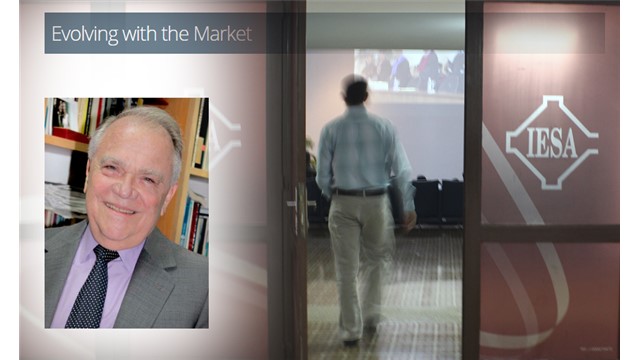
IESA was established in 1965 in the oil-producing nation of Venezuela. The school’s founders created the private, nonprofit institution to establish a source of business talent that would facilitate the country’s development as it profited from the oil industry. As oil prices rose, both the private and public sectors of Venezuela expanded, and the school’s growth followed the growth of the economy.
IESA was among the first schools in the region to address both private and public management and to require core faculty members to possess PhDs. From the beginning, knowledge-based research has formed a key part of the educational process in both academic and executive education programs, and professors have contrasted global trends with local realities.
Originally, the school offered two-year daytime academic programs that focused solely on general management topics. Over time, these evolved to academic and executive education programs that were taught mainly at night and increasingly on weekends and that included more specialized studies for the financial and marketing departments of private enterprises.
Without a doubt, one very important factor that has allowed IESA to achieve and maintain high academic standards has been the accreditations we earned from AACSB in 2004, AMBA in 2005, and EQUIS in 2008. Faculty, students, alumni, donors, and business executives all place great value on the accreditations. Because the market also values these accreditations, we are able to maintain the premium pricing we must charge to guarantee financial stability, since the school does not receive public funding.
Nonetheless, we see challenges ahead. During the school’s first 30 years, our progress stemmed from the political stability of the nation and the fact that democratic governments placed great importance on the availability of both free universal public education and private education. But ever since Hugo Chavez was first elected president in 1998, the economic, political, and social climate has deteriorated, resulting in a significant brain drain for the country. Many of the business professionals who have left are IESA graduates. While we are pleased that they are able to compete successfully in the global village, many of us believe IESA must play a new role in the future. We must help educate the next generation of leaders who will reconstruct Venezuela’s public and private institutions once the current political leadership changes.
We believe we have other critical tasks in the years ahead. For instance, international employment trends indicate that the majority of tomorrow’s jobs will be in services rather than in the traditional agricultural or industrial sectors. We recognize that many of our future graduates will be more interested in self-employment than in working for large corporations—where jobs will be very scarce, in any case. Consequently, IESA is placing more importance on entrepreneurship, family business, and social leadership.
We also will need to develop our strategy for e-learning. Because it provides free or low-cost education over the Internet, e-learning poses a challenge to IESA’s business model. At the same time, it offers new opportunities for both academic and executive education programs, and we know IESA will need to manage this new way of communicating knowledge to be successful in the future.
Therefore, to maintain our position in local and international markets, we will do what we have always done: evolve with the changing needs of our industry, our business leaders, our civil servants, and our nation.
Gustavo Roosen is President of the Instituto de Estudios Superiores de Administración (IESA) in Caracas, Venezuela.